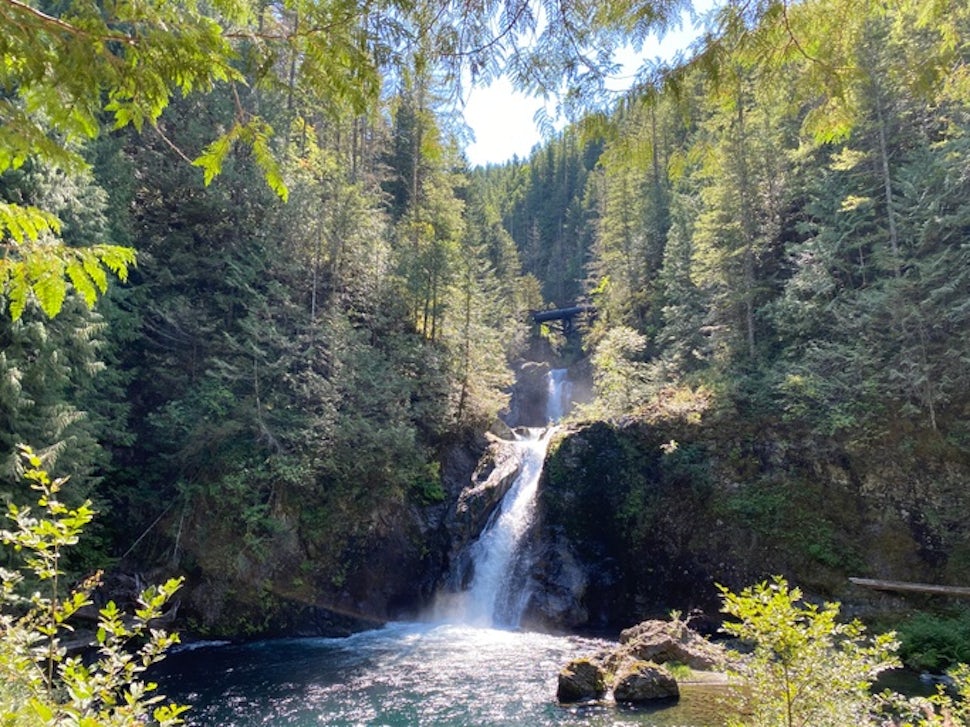Touring the Cedar River Watershed
This educational fieldtrip was more than checking a diversity box, it was an opportunity for intergenerational and interracial learning about where our drinking water comes from in Seattle.

Outside of writing and podcasting about environmental justice, I am one of the Multicultural Outreach Managers for a well-established, South Seattle-based environmental non-profit. ECOSS, is an organization that specializes in bridging knowledge and cultural gaps, serving the interests of residents, industry and government. One of the many programs we work on is in partnership with the Seattle Public Utilities (SPU’s) and the Cedar River Watershed (CR) located in North Bend, Washington. As a multilingual and multicultural organization, my coworkers and I brought along community members of all ages that spoke Vietnamese, Spanish, Tagalog and Cantonese to learn about the watershed. This program is part of SPU’s Community Connections program that funds environmental educational learning opportunities like the CRW tour. It was my first time visiting the watershed, and although I was asked to work 8 hours on a perfect summer day, I had nothing to complain about. If anything, I was left with wanting more opportunities to bring along community members to share this information with. Beside the beautiful scenery that the watershed provides, I was impressed by two things on the tour: the Indigenous history of the land that was shared with our group and the opportunity for action that these tours have on our communities.

Indigenizing the Cedar River Watershed
A common trope we hear about the so-called United States of America is that it’s the “country of immigrants” where everyone is neither from here nor there; we all belong in the land of diaspora. As the first-generation U.S citizen in my family, I know quite a bit about diaspora. However, I also know that the land I occupy is neither mine nor of my parents’ who immigrated to this country. This is Indigenous land.
One of my favorite parts about the Cedar River Watershed tour was that immigrant community members residing in Seattle were able to learn more about the Indigenous history of their surrounding environment. The Cedar River Watershed education guide provided the group with Indigenous historical facts and images about the surrounding bodies of water and land we were visiting that day. I was not only pleased by the fact that we didn’t gloss over the Indigenous history of the land, but actually surprised at how honest the tour guide was about the violent nature of this history and how Indigenous communities today are still fighting for the original treaties and water rights to be respected. Among my group of Spanish-speaking participants, this tour stop led to a very engaging conversation about how one of the Venezuelan elders in my group actually remembered his father speaking in their Indigenous language when he was a child, and how during his forestry career, he worked alongside Indigenous people to protect resources in his home country. I can’t speak for my coworkers, but at least for the Latin American folks on the tour, they would have been more than thrilled to have spent the whole day learning about the Indigenous history of the land and how the tribes interact with the land today.
Education Leads to Action
Working for ECOSS over the last 4 months has given me an opportunity to connect with communities of color across the Duwamish Valley, but most importantly ECOSS has reminded me of how important it is for education in all sectors to be deinstitutionalized. Black, Indigenous, people of color, across ages, income and other intersecting identities don’t need to belong to an institution in order to access environmental education. It should be their right to know about the Indigenous history of the land they reside on and to know who they should hold accountable for the water they consume everyday. When our communities are informed, we can strengthen our ties beyond using a common spoken language. Instead we can build solidarity on the actions we take to protect a common resource, a resource that no matter where we come from in the world, it will always be considered sacred. Environmental education is a right because all communities deserve access to clean water for the present and future generations to come.

We want to acknowledge and thank the past, present, and future generations of all Native Nations and Indigenous Peoples whose ancestral lands we travel, explore, and play on. Always practice Leave No Trace ethics on your adventures and follow local regulations. Please explore responsibly!
Do you love the outdoors?
Yep, us too. That's why we send you the best local adventures, stories, and expert advice, right to your inbox.







